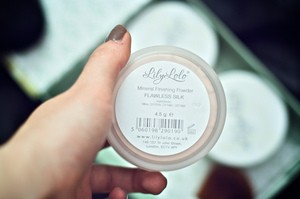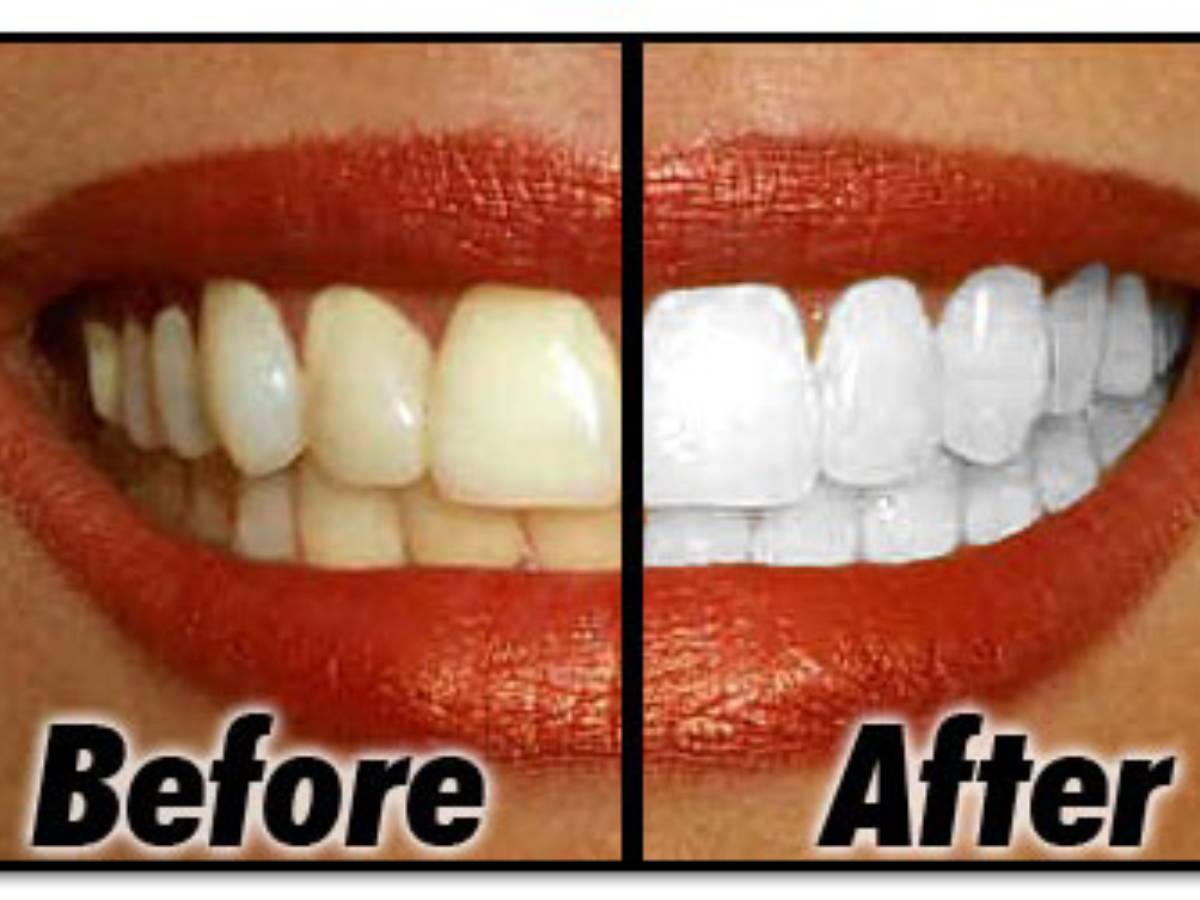 Mineral makeup has become increasingly popular over the years.
Mineral makeup has become increasingly popular over the years.
Last year, there were 160 new launches of mineral makeup in the United States alone!
If you’re anything like me, you’ve probably been curious about all the mineral makeup hype, especially with regard to all-natural mineral makeup.
Mineral makeup does sound good for your skin and it looks great too, so I set out to see if it really is as good as it seems.
Here’s what you need to know about natural mineral makeup — the good, the bad, and the truth…
Mineral Makeup vs Traditional Makeup
Mineral makeup comes in 2 forms: all-natural and man-made with synthetics and preservatives.
The specific differences between those 2 types are compared below, but first are the differences between mineral makeup products (in general) and traditional makeup that women have been using for years.
- Mineral makeup is lightweight, so it naturally blends to hide imperfections unlike traditional makeup which can be thick and heavy, making it harder to blend. Traditional makeup can also settle into the lines and wrinkles on your face, making your imperfections stand out.
- Mineral makeup lacks moisture and other materials that cause bacteria to grow, so it can last 2 to 3 years. Traditional makeup has a shelf life of about 6 months.
- Traditional makeup may contain some mineral ingredients, but it will also contain synthetic dyes, talc, oils, fragrances, and alcohols that can clog your pores, dry out your skin, and can cause allergic reactions.
- Mineral makeup is based in a loose powder. Traditional makeup comes in a liquid or cream form.
- Traditional makeup usually runs when it comes in contact with water. Mineral makeup is water-resistant and bonds to the skin, so it won’t smear or wash off.
- Both types of makeup may contain bismuth oxychloride which can cause allergic reactions. However, since traditional makeup has a lower concentration of this ingredient than most mineral makeups do, it can be better for people with sensitive skin. Natural mineral makeup does not contain any bismuth oxychloride (see below).
Natural Mineral Makeup vs Other Mineral Makeup
Natural mineral makeup is often referred to as organic makeup because it’s only made with all-natural ingredients.
Not all makeup that has the word “mineral” in its name is actually true mineral makeup. Drugstore brands like Maybelline and L’Oreal have jumped on the mineral bandwagon but they’re only half on it. They continue to use chemicals, preservatives, and other undesirable ingredients along with the minerals. Be sure when shopping to look at the ingredients label and the claims. No cosmetic company can call their makeup “all natural” without being just that. If it doesn’t say “all natural” on the label, then it isn’t and you should move on if your goal is to find the very best that nature has to offer. Source
Here are some of the biggest differences between natural mineral makeup and other mineral makeup products:
- Natural mineral makeup does not contain bismuth oxychloride. Bismuth oxychloride is a mineral, but not a natural one. Other forms of mineral makeup commonly do have this ingredient.
- Natural mineral makeup is free of talc and cornstarch as well.
- Natural mineral makeup does not use synthetics like paraben preservatives and other fillers. Other mineral makeup might contain fillers, colors, binders, preservatives, and other chemicals.
- Natural mineral makeup is plant-based and uses naturally-derived ingredients that don’t contain herbicides, pesticides and insecticides. Other mineral makeups can contain harmful ingredients like preservatives, mineral oil, waxes, etc.
- Natural mineral makeup is rich in vitamins, minerals, and oils that are good for your skin. It’s also toxic-free, whereas other mineral makeup products are not.
- Natural mineral makeup will say “talc-free,” “paraben-free,” or “100% all natural”. Some other mineral makeup products might say “from nature” or natural beauty”, but that doesn’t mean it has all-natural ingredients.
Natural ingredients can be good for skin. Plant oils and shea and cocoa butters make fantastic moisturizers, Fredric Brandt, M.D., a dermatologist in New York City and Miami, says. Aloe and chamomile are soothing. And minerals have become the darlings of new makeup lines for sensitive skin. Just as important as what the natural formulas contain is what they leave out: Ideally, it’s a long list of potential irritants, including synthetic fragrance compounds and dyes that can aggravate sensitive skin, and parabens, which are not as allergenic as once thought, though companies are using both natural and synthetic substitutions instead. Source
Pros & Cons Of Using Mineral Makeup
The following pros and cons pertain to all forms of mineral makeup — thos
e which are made with all-natural ingredients, and those which are not.
These are positive and negative characteristics that can be said of mineral makeup in general.
Pros:
- Mineral makeup absorbs oil. The finely ground powder in mineral makeup absorbs excess oil. The ingredients adhere to the skin’s surface, but are not absorbed. So, you get a full day’s coverage without your makeup clogging your pores or building up within your body.
- Mineral makeup is lightweight. Unlike regular makeup that can leave your face feeling heavy and caked, mineral makeup is weightless and allows your face to breathe — which is what most people like about it. It’s like you’re not wearing any makeup at all.
- Mineral makeup is highly recommended by dermatologists and plastic surgeons — particularly for those who’ve just had chemical peels, microdermabrasion, or laser resurfacing. The minerals cool your skin and help the skin to heal faster.
- Mineral makeup has an SPF that protects you from the sun’s harmful rays. The zinc oxide and titanium dioxide found in most mineral makeup offers UVA and UVB protection by reflecting and blocking the harmful effects of the sun. Most mineral makeup provides an SPF of at least 15, which helps to prevent the premature aging of your skin.
- Mineral makeup is long lasting. Not only does it stay on your skin longer (which means fewer trips to the ladies room to re-apply), you also need to use very little of the product to add color and protect your skin. Plus, the shelf-life of mineral makeup is much longer than traditional makeup.
- Mineral makeup is hypo-allergenic. Therefore, it’s safe for anyone to use — even those with super-sensitive skin. Most mineral makeup is free of silicones, fragrances, chemicals, rice powders and dyes.
- Mineral makeup gives complete coverage. Because of the light, fine powders found in mineral makeup, you can put on more or less each time — for as light or as heavy coverage as you want.
- Mineral makeup eliminates makeup lines. Since it’s so light and loose on the skin, mineral makeup will never cake or crease. This also helps to reduce makeup lines between your face and neck.
- Mineral makeup heals your skin. Not only does mineral makeup hide blemishes, cover redness, and even out your skin tone, but it also has some healing properties. People who suffer from severe acne, rosacea, skin allergies, or eczema are advised to use mineral makeup.
- Mineral makeup is easy to apply. With a brush or a sponge, mineral makeup can be applied quickly and easily each time.
- Mineral makeup reflects light. The minerals reflect light, which reduces the appearance of aging by hiding fine lines and wrinkles.
Cons:
- Mineral makeup is lighter in color. Because most ingredients in mineral makeups are all-natural, the makeup is generally lighter in color. This can make it harder for darker skin types to find the right color match.
- Mineral makeup is more expensive. Most mineral makeup costs more than your traditional makeup. However, there are cheaper brands of mineral makeup that tend to have similar ingredients to the higher-priced brands.
- Mineral makeup can cause negative reactions. In hotter weather, bismuth oxychloride can cause your skin to itch. It has also been known to cause your skin to peel, turn red, and become blotchy. Mica is another ingredient found in some mineral makeup that can cause breakouts.
- Mineral makeup is messy. It can leave a dusting of powder all over your counters, floors, and even your clothing — so be careful when applying.
Since there is no set regulation for what constitutes a “mineral” makeup, any product containing minerals as a primary ingredient can be marketed as such — even if it contains a whole lot of other “less natural” ingredients. Source
Top Mineral Makeup Brands
All-Natural:
- Mineral Hygenics — Claims to be “the most natural cosmetic a woman can wear.” With only 4 primary ingredients (the lowest in the industry), Mineral Hygenics is one of the best natural mineral makeup lines. (View the Mineral Hygenics ingredients list.)
- Erth Minerals — Products contain 100% pure, crushed minerals with no fillers such as bismuth oxychloride, talc, or nano-particles. Erth Minerals products are voluntarily listed through the FDA’s Voluntary Cosmetic Database and through Skin Deep’s Cosmetics Safety Database. (See the Erth Minerals ingredients list.)
- Afterglow Cosmetics — Products are free of synthetic dyes, paraben preservatives and free irritants like bismuth oxychloride. Afterglow Cosmetics only uses pharmaceutical grade minerals and pigments, as well as certified organic botanicals. (View the Afterglow Cosmetics ingredients list.)
- Micabella Nat
ural Mineral Makeup — Their all-natural powders consist of 100% pure mica and minerals without any oils, talc, chemical dyes, preservatives, or other fillers. Unfortunately, Micabella Natural Mineral Makeup does not openly disclose their complete list of ingredients which has led people to question the authenticity of their all-natural claim.
NOTE: In many cases, one single ingredient could be what keeps a mineral makeup from being a natural mineral makeup. Even though those ingredients (like bismuth oxychloride, for example) have been approved by the FDA for use in cosmetics, such ingredients may be an skin irritant for some, while not for others. The same is true for other ingredients that may not be all-natural. Here’s a brief comparison of ingredients between mineral makeup lines. And here’s a complete list of ingredients in mineral makeup products.
Others:
- Pur Minerals — Offers a 4-in-1 Pressed Mineral Makeup that eliminates the dusty mess that often results when using other loose powder makeups. Pur Minerals contains no harsh chemical dyes, petroleum-based oils, fragrances, talc, or fillers. (View some of the ingredients in Pur Minerals.)
- Sheer Cover — Their minerals include botanicals, sun protection, and anti-oxidant green tea. Sheer Cover has an SPF of 15 and uses “true shade technology” that blends in with your skin tone. (See the Sheer Cover ingredients list.).
- e.l.f. Minerals — They have some of the lowest priced mineral makeup products on the market right now. They may not be the best (nor are they all-natural, as they claim), but elf Minerals provides a decent starter kit if you (or a younger teen) would like to try mineral makeup.
- Jane Iredale — It’s recommended by the Skin Cancer Foundation, plastic surgeons, and dermatologists around the world. Jane Iredale mineral makeup provides an SPF up to 30. While it’s not all-natural, it is talc-free and paraben-free. (See Jane Iredale ingredients list.)
- Arbonne — The main ingredients are minerals such as mica, zinc oxide, and titanium dioxide. Arbonne Mineral Powder Foundation is available in 15 shades, and you get a new brush with each re-order. (The Arbonne Mineral Makeup ingredients list can also be viewed on the Arbonne site.)
- Bare Escentuals has a Bare Minerals makeup collection that is very popular. The Bare Escentuals brand has been awarded numerous times over the years, including the Best Beauty Buys Award. Bare Minerals includes a foundation with an SPF of 15 and 20 different shades to choose from. (View the Bare Minerals ingredients.)“While we expect Bare Escentuals to continue their U.S. success in Europe and Japan, particularly after being bought by the Japanese company Shiseido earlier this year, the brand will need to be careful to continue to set itself apart and keep the high levels of consumer trust to ensure they stand out in a market which may be in danger of saturation,” McCrorie added. “With no official validation for mineral make-up, consumers will start to become skeptical as more and more brands launch make-up with mineral claims. Therefore only the brands which have built the strongest trust with consumers like Bare Escentuals will continue their success. Source
See what others think is the best mineral makeup. (Here are 10 tips for choosing the best natural mineral makeup for your skin.)
UPDATE: The newest mineral makeup to hit the streets is Smashbox HALO perfecting powder and perfecting bronzer. Since these new Smashbox HALO products are especially hydrating, they make a great mineral makeup for the over-40 crowd.



